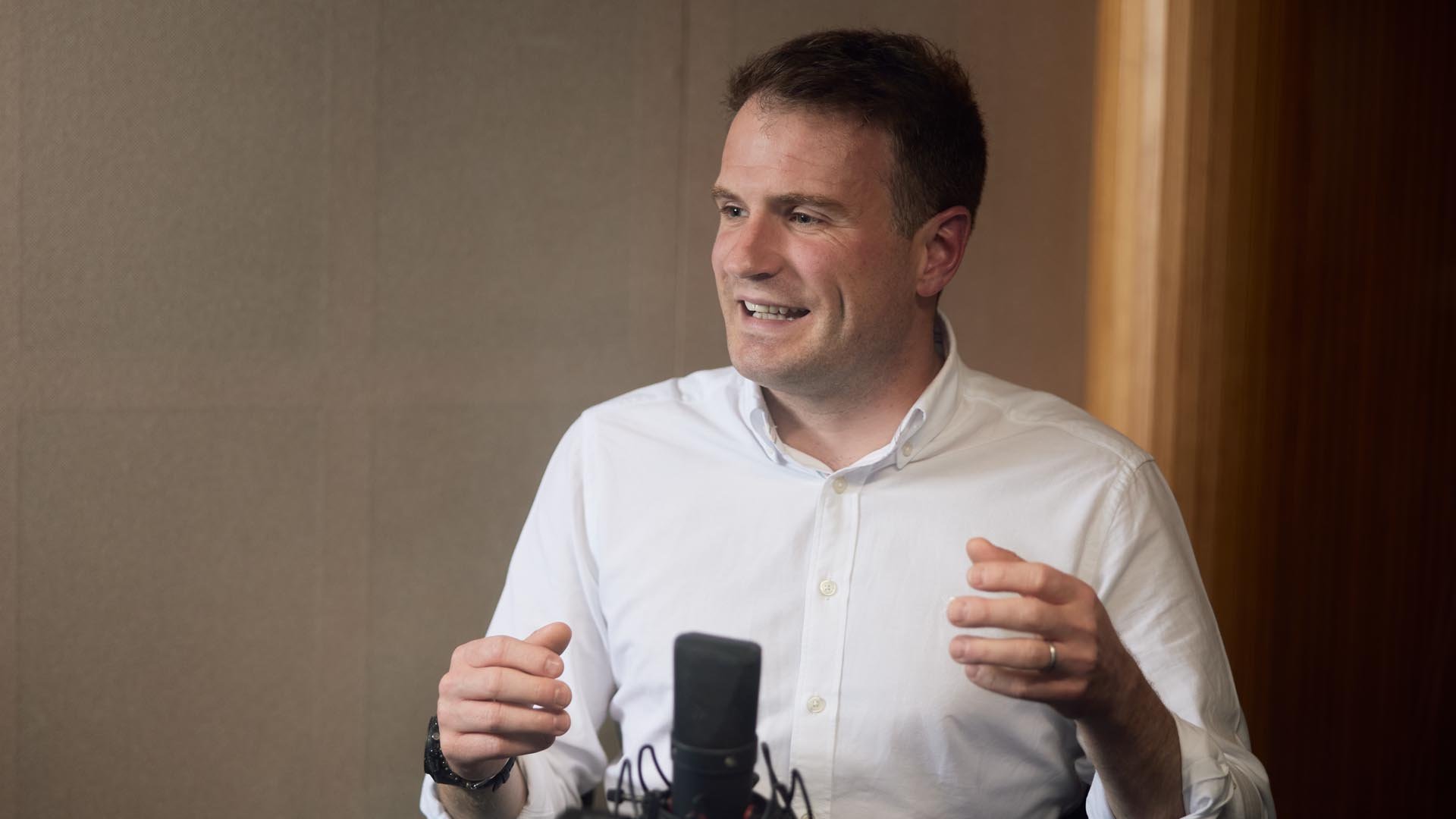Key points
- China is transitioning from a property-led economy to one focused on advanced manufacturing
- The electric car maker Li Auto and battery producer CATL are among the firms leading this development
- Recent stimulus may attract new interest, but long-term investors should beware of rising trade barriers
Listen to the podcast on Spotify and Apple Podcasts
Capital at risk
China matters. It’s the world’s second-largest economy, an important source of global demand and has rising diplomatic influence, particularly in Asia.
“As a global investor, even if you choose not to invest directly in Chinese companies, you can’t ignore the country because you can’t understand the world without understanding China,” says investment manager Helen Xiong on our Short Briefings on Long Term Thinking podcast.
“Global supply chains depend on it, it’s home to some of the leading technology companies, and the green energy transition will only be possible if China plays a leading role.”
Yet until recent stimulus measures, the markets had focused on China’s relatively weak GDP figures, construction industry troubles and lacklustre consumer spending.
Xiong acknowledges that China has not shared the post-Covid recovery enjoyed by many of its Western counterparts. But as an investor on the Global Alpha Team and joint deputy manager of The Monks Investment Trust, she sees an opportunity in a sector that is one of China’s government’s highest priorities.
“China is laying the foundations for advanced manufacturing,” Xiong says. “It’s trying to move away from low-value sectors like property building into what’s a higher-value and ultimately higher-return activity.”
This favours firms involved in cleantech – including solar panels – robotics, advanced medicine and agricultural technologies. But it’s perhaps most apparent in how China leads the world in new energy vehicles (NEVs), a category including electric cars and, to a lesser extent, those powered by hydrogen fuel cells.
Overcoming overcapacity
Domestic sales of NEVs overtook conventional auto models for the first time in July, and an industry body has forecast that total production will reach 11.5 million vehicles this year. That’s a 20 per cent gain over 2023. No other country comes close.
The Chinese government has provided support via tax breaks and subsidies, and the installation of more than 10 million charging points has further helped.
Yet despite rapid growth, fears about overcapacity have deterred some from investing in the companies involved. But Xiong suggests that is a short-term issue.
“We know as companies scale production, their manufacturing costs fall, which means their prices can come down, creating further demand,” she explains, expanding on a point first discussed in her paper China: finding the new shoots of growth.
“Initially, all these new companies get a lot of state support, but eventually, the poor ones will be outcompeted by the more efficient, innovative players, and you’ll get market consolidation. In the meantime, all the learnings and intellectual property these Chinese companies gain should build up their competitive advantage.”

Li Auto says its L7 car’s range is over 1,000km thanks to its inclusion of a petrol engine that recharges its battery pack when needed
© Li Auto
If only the best survive, investors need to be picky. In Xiong’s case, that means investing in Li Auto, one of only three global firms currently making electric vehicles at a profit.
“Li Auto has pioneered a solution to ‘range anxiety’ by putting a small combustion engine in its cars, whose sole purpose is to charge the battery when depleted,” says Xiong. “Its EREVs [extended-range electric vehicles] use little or no petrol on most daily commutes but are cheaper to make than other electric vehicles as they don’t need as much battery storage for long journeys.”
That means Li Auto can provide customers with other premium experiences without an excessive price tag, as Xiong experienced in Beijing.
“The whole vehicle is voice-controlled. When I asked it to turn on my back massage, it understood where the sound came from and only activated my seat. There are also hand-gesture-controlled entertainment screens and a mini-fridge in the back.
“People in China talk about these cars being to the automotive sector what iPhones were to mobiles. I don’t think I fully internalised it until I test-drove one for myself.”
Trade barriers
CATL also features in the portfolios Xiong manages. The Chinese company made 37 per cent of the world’s electric vehicle batteries last year, more than double its nearest rival. There is also growing demand for its other products, including equipment to store renewables-generated energy.
Xiong is mindful that the EU and US have increased tariffs against some of China’s advanced manufacturers. However, the risk is relatively contained in these cases.
“Li Auto is mostly a domestic story,” she says. “CATL does sell to Europe but manufactures there, with plants in Hungary and Germany, so a lot of the restrictions won’t apply.
“But ultimately, it costs 40 per cent more to make a car in Europe than it does in China, and we as a society have to decide whether we’re happy to pay that cost and risk delaying our green energy transition or whether we accept that China has a role to play.”

CATL’s clients include Li Auto, Geely, Tesla, Volkswagen and BMW
© Xinhua/Shutterstock
The potential for retaliatory Chinese trade restrictions has, however, influenced Global Alpha’s decision to reduce its exposure to some Western companies whose investment case depended on continued sales to China.
“Rising trade barriers are an inevitability,” says Xiong. “So we’ve reduced or sold out of companies including cosmetics maker Estée Lauder, sportswear firm Adidas and drinks producer Pernod Ricard. We now favour instead companies that are ‘local-for-local’.”
Stimulus
Recent stimulus from China’s central bank, government agencies and regulators – and rumours of more to come – has boosted Chinese share prices and sentiment. However, Xiong says her focus on five-year-plus time frames means she’s looking for signals of enduring change.
“The announcements I’m most interested in are about encouraging mergers and acquisitions and companies to pay back more cash to shareholders,” she explains.
“I wonder if policymakers are trying to learn from Japan’s reforms, which encouraged firms to raise corporate governance standards and care more about shareholder returns.
“That’s led to many Japanese companies’ valuations increasing significantly. But it will take time to know.”
Subscribe to Short Briefings on Long Term Thinking on Spotify, Apple Podcasts or any other podcast app.
You can read more about investment opportunities in China in Helen's article: China: finding the new shoots of growth.
Words by Leo Kelion

Investment Manager
Helen is an investment manager in the Global Alpha Team. She joined Baillie Gifford in 2008 and became a partner in 2020. In addition to Global Alpha, Helen has spent time working in our Developed Asia, UK, US Equity Growth, and Emerging Markets Equity teams. She graduated BSc (Hons) in Economics from the University of Warwick in 2007 and MPhil in Economics from the University of Cambridge in 2008.
Risk factors
The views expressed should not be considered as advice or a recommendation to buy, sell or hold a particular investment. They reflect opinion and should not be taken as statements of fact nor should any reliance be placed on them when making investment decisions.
This communication was produced and approved in October 2024 and has not been updated subsequently. It represents views held at the time of writing and may not reflect current thinking.
Potential for profit and loss
All investment strategies have the potential for profit and loss, your or your clients’ capital may be at risk. Past performance is not a guide to future returns.
This communication contains information on investments which does not constitute independent research. Accordingly, it is not subject to the protections afforded to independent research, but is classified as advertising under Art 68 of the Financial Services Act (‘FinSA’) and Baillie Gifford and its staff may have dealt in the investments concerned.
All information is sourced from Baillie Gifford & Co and is current unless otherwise stated.
The images used in this communication are for illustrative purposes only.
Important Information
Baillie Gifford & Co and Baillie Gifford & Co Limited are authorised and regulated by the Financial Conduct Authority (FCA). Baillie Gifford & Co Limited is an Authorised Corporate Director of OEICs.
Baillie Gifford Overseas Limited provides investment management and advisory services to non-UK Professional/Institutional clients only. Baillie Gifford Overseas Limited is wholly owned by Baillie Gifford & Co. Baillie Gifford & Co and Baillie Gifford Overseas Limited are authorised and regulated by the FCA in the UK.
Persons resident or domiciled outside the UK should consult with their professional advisers as to whether they require any governmental or other consents in order to enable them to invest, and with their tax advisers for advice relevant to their own particular circumstances.
Financial Intermediaries
This communication is suitable for use of financial intermediaries. Financial intermediaries are solely responsible for any further distribution and Baillie Gifford takes no responsibility for the reliance on this document by any other person who did not receive this document directly from Baillie Gifford.
Europe
Baillie Gifford Investment Management (Europe) Ltd (BGE) is authorised by the Central Bank of Ireland as an AIFM under the AIFM Regulations and as a UCITS management company under the UCITS Regulation. BGE also has regulatory permissions to perform Individual Portfolio Management activities. BGE provides investment management and advisory services to European (excluding UK) segregated clients. BGE has been appointed as UCITS management company to the following UCITS umbrella company; Baillie Gifford Worldwide Funds plc. BGE is a wholly owned subsidiary of Baillie Gifford Overseas Limited, which is wholly owned by Baillie Gifford & Co. Baillie Gifford Overseas Limited and Baillie Gifford & Co are authorised and regulated in the UK by the Financial Conduct Authority.
China
Baillie Gifford Investment Management (Shanghai) Limited
柏基投资管理(上海)有限公司(‘BGIMS’) is wholly owned by Baillie Gifford Overseas Limited and may provide investment research to the Baillie Gifford Group pursuant to applicable laws. BGIMS is incorporated in Shanghai in the People’s Republic of China (‘PRC’) as a wholly foreign-owned limited liability company with a unified social credit code of 91310000MA1FL6KQ30. BGIMS is a registered Private Fund Manager with the Asset Management Association of China (‘AMAC’) and manages private security investment fund in the PRC, with a registration code of P1071226.
Baillie Gifford Overseas Investment Fund Management (Shanghai) Limited
柏基海外投资基金管理(上海)有限公司(‘BGQS’) is a wholly owned subsidiary of BGIMS incorporated in Shanghai as a limited liability company with its unified social credit code of 91310000MA1FL7JFXQ. BGQS is a registered Private Fund Manager with AMAC with a registration code of P1071708. BGQS has been approved by Shanghai Municipal Financial Regulatory Bureau for the Qualified Domestic Limited Partners (QDLP) Pilot Program, under which it may raise funds from PRC investors for making overseas investments.
Hong Kong
Baillie Gifford Asia (Hong Kong) Limited 柏基亞洲(香港)有限公司 is wholly owned by Baillie Gifford Overseas Limited and holds a Type 1 licence from the Securities & Futures Commission of Hong Kong to market and distribute Baillie Gifford’s range of collective investment schemes to professional investors in Hong Kong. Baillie Gifford Asia (Hong Kong) Limited 柏基亞洲(香港)有限公司 can be contacted at Suites 2713-2715, Two International Finance Centre, 8 Finance Street, Central, Hong Kong. Telephone +852 3756 5700.
South Korea
Baillie Gifford Overseas Limited is licensed with the Financial Services Commission in South Korea as a cross border Discretionary Investment Manager and Non-discretionary Investment Adviser.
Japan
Mitsubishi UFJ Baillie Gifford Asset Management Limited (‘MUBGAM’) is a joint venture company between Mitsubishi UFJ Trust & Banking Corporation and Baillie Gifford Overseas Limited. MUBGAM is authorised and regulated by the Financial Conduct Authority.
Australia
Baillie Gifford Overseas Limited (ARBN 118 567 178) is registered as a foreign company under the Corporations Act 2001 (Cth) and holds Foreign Australian Financial Services Licence No 528911. This material is provided to you on the basis that you are a “wholesale client” within the meaning of section 761G of the Corporations Act 2001 (Cth) (“Corporations Act”). Please advise Baillie Gifford Overseas Limited immediately if you are not a wholesale client. In no circumstances may this material be made available to a “retail client” within the meaning of section 761G of the Corporations Act.
This material contains general information only. It does not take into account any person’s objectives, financial situation or needs.
South Africa
Baillie Gifford Overseas Limited is registered as a Foreign Financial Services Provider with the Financial Sector Conduct Authority in South Africa.
North America
Baillie Gifford International LLC is wholly owned by Baillie Gifford Overseas Limited; it was formed in Delaware in 2005 and is registered with the SEC. It is the legal entity through which Baillie Gifford Overseas Limited provides client service and marketing functions in North America. Baillie Gifford Overseas Limited is registered with the SEC in the United States of America.
The Manager is not resident in Canada, its head office and principal place of business is in Edinburgh, Scotland. Baillie Gifford Overseas Limited is regulated in Canada as a portfolio manager and exempt market dealer with the Ontario Securities Commission (‘OSC’). Its portfolio manager licence is currently passported into Alberta, Quebec, Saskatchewan, Manitoba and Newfoundland & Labrador whereas the exempt market dealer licence is passported across all Canadian provinces and territories. Baillie Gifford International LLC is regulated by the OSC as an exempt market and its licence is passported across all Canadian provinces and territories. Baillie Gifford Investment Management (Europe) Limited (‘BGE’) relies on the International Investment Fund Manager Exemption in the provinces of Ontario and Quebec.
Israel
Baillie Gifford Overseas Limited is not licensed under Israel’s Regulation of Investment Advising, Investment Marketing and Portfolio Management Law, 5755-1995 (the Advice Law) and does not carry insurance pursuant to the Advice Law. This material is only intended for those categories of Israeli residents who are qualified clients listed on the First Addendum to the Advice Law.
Singapore
Baillie Gifford Asia (Singapore) Private Limited is wholly owned by Baillie Gifford Overseas Limited and is regulated by the Monetary Authority of Singapore as a holder of a capital markets services licence to conduct fund management activities for institutional investors and accredited investors in Singapore. Baillie Gifford Overseas Limited, as a foreign related corporation of Baillie Gifford Asia(Singapore) Private Limited, has entered into a cross-border business arrangement with Baillie Gifford Asia (Singapore) Private Limited, and shall be relying upon the exemption under regulation 4 of the Securities and Futures (Exemption for Cross-Border Arrangements) (Foreign Related Corporations) Regulations 2021 which enables both Baillie Gifford Overseas Limited and Baillie Gifford Asia (Singapore) Private Limited to market the full range of segregated mandate services to institutional investors and accredited investors in Singapore.
121437 10050738




